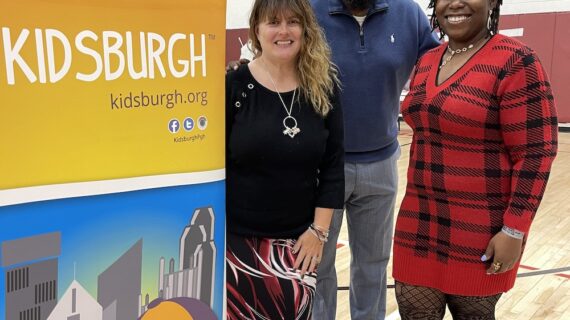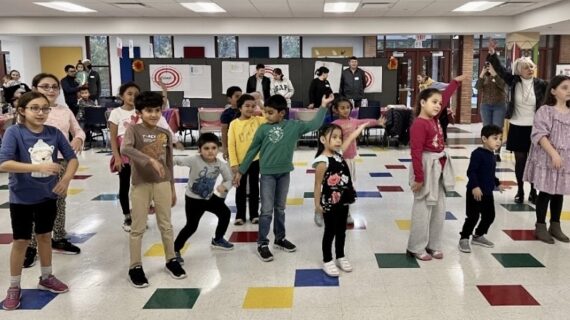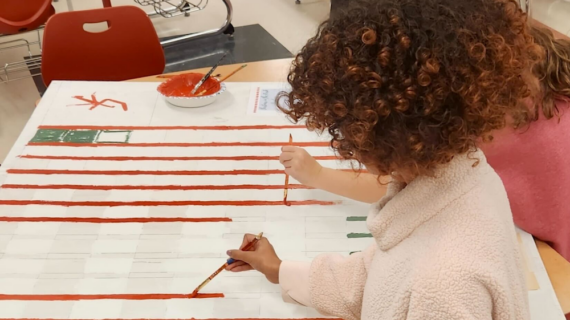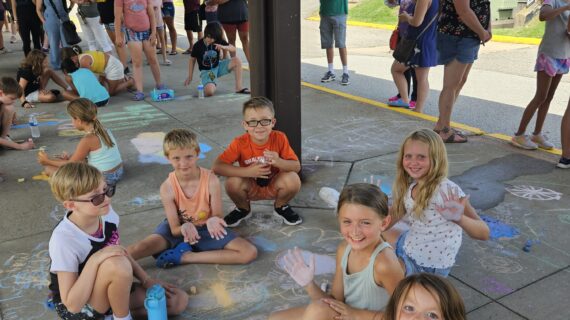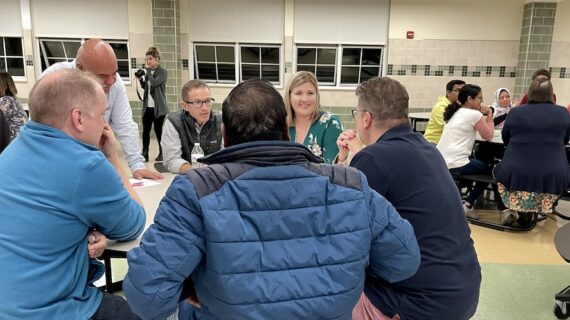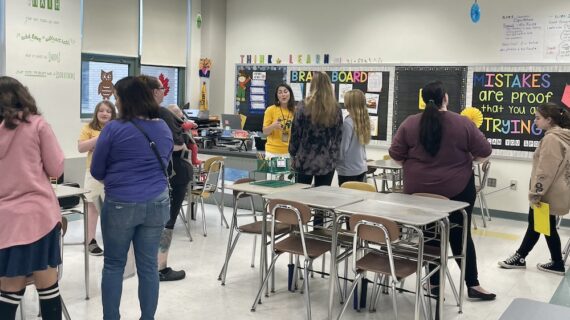
Parents as Allies: Keystone Oaks leans into the value of ‘opening your doors, literally’
When kids are little, especially if a school is relatively small, parents have plenty of opportunities to build relationships with teachers. That has always been the case at the three elementary schools in the Keystone Oaks district, where each grade has only about 40 students at each school.
Teachers are available for conversations and parents are invited to volunteer at events throughout the year.
But like so many districts, Keystone Oaks realized that things change for parents when their kids reach middle school. A student suddenly has multiple teachers instead of just one. And as all three elementary schools converge in one middle school building, kids now have well over 100 students in their grade.
The result? “Parents did not feel connected to the middle school in the way they did at the elementary schools,” says Sarah Welch, communications director at Keystone Oaks.
School district leaders knew that some parents did attend traditional events like the Open House held each September, Welch says. “But we didn’t see the type of engagement we were hoping for.”
So that was their challenge when Welch and her team joined the Parents as Allies family-school engagement project in 2021. PAA teaches teams of school staff and parents to work together, harnessing the tools of design thinking to create real engagement – rather than just occasional involvement – between schools and families.
And more than occasional is exactly where Keystone Oaks is leaning.
WHAT DID THEY TRY?
One of the Keystone Oaks’ team’s first hacks was this: Every spring, the fifth grade students visit the middle school to learn a bit about it and begin getting comfortable there ahead of transitioning to sixth grade in the fall.
The PAA team proposed inviting parents to attend this transition event so they could meet teachers and other parents and could begin feeling welcomed at the middle school building. It sent the message that the parents are a meaningful part of their kids’ middle school lives.
Everyone was invited to stay for a “movie night,” hosted by the middle school student council. The kids could watch the movie and hang out together, perhaps making a new friend or two. And parents could have a little extra time with school staff and teachers, making personal connections and asking questions that might be on their minds.
“Sometimes it’s just doing something simple,” Welch says. “It doesn’t have to be a big, complicated event. Sometimes you just need to open your doors, literally, and invite people in to sit down.”
This led to another new event: a fall celebration where parents could experience some of what their middle schoolers were learning.

Middle school is a time when parents feel more disconnected academically from their children, Welch says. So this event gave parents a firsthand look at what was happening in various classrooms, and the kids enjoyed showing off what they’d learned.
But rather than a serious, academically-focused approach, the night was planned with plenty of fun and creativity. Folks played mini golf in the gym and made ice cream with the consumer ed teacher. Language arts teachers led glow-in-the-dark language games and a team of history teachers dressed up as historical figures from ancient Egypt and did a craft about mummies.
Out of 45 middle school teachers, about 30 opted to create events and participate in the evening.
“It showed their commitment to embracing this idea and embracing family engagement – to really be there for students and families,” Welch says.
Additional events dreamed up by the PAA team included an in-person showcase of the available activities for middle schoolers, so that moms and dads could know what was available and get excited alongside their kids.
Over time, these events have created a growing culture of connection for middle school families.
“PAA has helped us push along the middle school transition,” Welch says. “It’s helped us think about increasing the activities offered, particularly to the sixth grade.”
WHAT WOULD THEY TELL OTHER SCHOOLS?
- Start small. Simple events that are thoughtfully designed can set the stage for new relationships.
- Listen to the challenges and experiences that your families are facing. This can give you insight into what’s needed, whether that would be new events, improved communication or increased counseling services.
- Once you know what’s needed, give that to families. You won’t be able to build trust if you don’t take their needs to heart and actually make changes.



